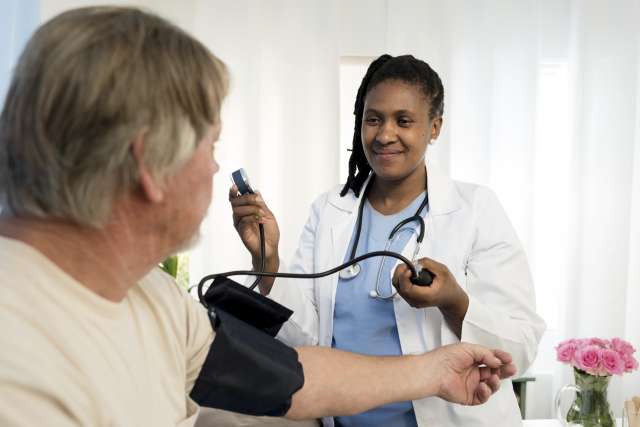Many adults have skipped their regular check-up, whether due to concerns about COVID-19 or because they were able to address some health issues via telehealth. However, regular check-ups allow physicians to detect and manage their patients’ health in a manner that can be done only in person. John D. Fernandez, MD, a UCLA internal medicine physician in Beverly Hills, and Jose Soza, DO, a family medicine physician in downtown Los Angeles, discuss the value of regular annual preventive visits and why they should not be delayed any longer.
What is the purpose of regular exams? “The annual check-up is all about prevention,” Dr. Fernandez says. “The pandemic has shown us prevention is key for infectious diseases. It’s also key to preventing or heading off many other kinds of disease.” He notes that annual physicals help physicians assess their patients’ health regardless of whether or not the patient is experiencing symptoms. Many serious health problems, such as diabetes, high blood pressure and high cholesterol, may not cause immediate symptoms but can grow more severe when left untreated.
What can paitients expect during a typical annual exam? Dr. Soza explains that a medical assistant or nurse will take the patient’s vital signs, including blood pressure, pulse, temperature, breathing rate and oxygen level. The physician will ask about any current concerns, discuss previously identified conditions or issues, and also review the patient’s medical history, environment, medications and allergies. A physical exam is tailored to each individual, based on factors like age, family history, lifestyle factors, and preexisting medical conditions. The physician will order appropriate vaccines and lab tests for the patient and check if test values have changed over time to identify any trends. “We discuss diet and exercise, since those are a large component of other underlying medical issues,” Dr. Soza says. “We also screen for depression and anxiety.”
Vaccines that may be due include the flu vaccine, recommended annually, and the Tdap (tetanus, diphtheria and pertussis) vaccine, recommended ever y 10 years. “Screenings are a vital component of annual exa ms,” Dr. Soza says. “We’ l l discuss, perform or schedule cancer screenings such as colonoscopies, Pap smears, mammograms and prostate screenings.”
How can patients make the exam the most productive? “It’s always helpful to bring in your medications so we can review them, and to mention any physical changes you’ve not iced or health concerns you have,” Dr. Fernandez says . Patients new to the UCLA To find a UCLA Health Health System should bring records from their previous provider, such as test and screening results, he adds. “Don’t wait to schedule your annual check-up,” Dr. Soza says. “Addressing lifestyle issues and making sure you’re up to date on vaccinations, labs and screenings is the best way to keep you healthy and avoid problems down the line.”


